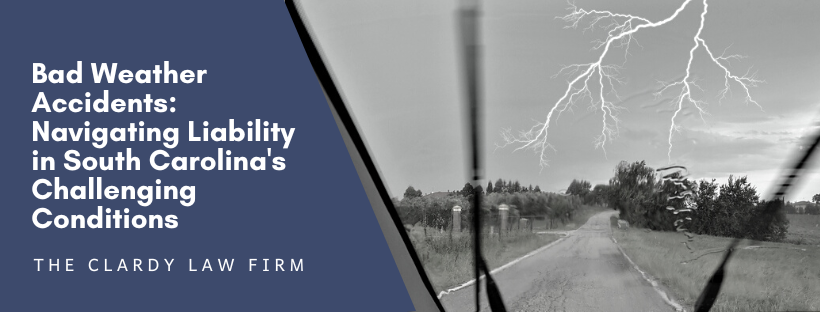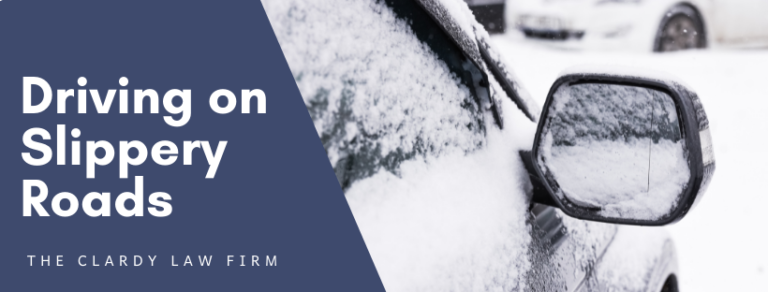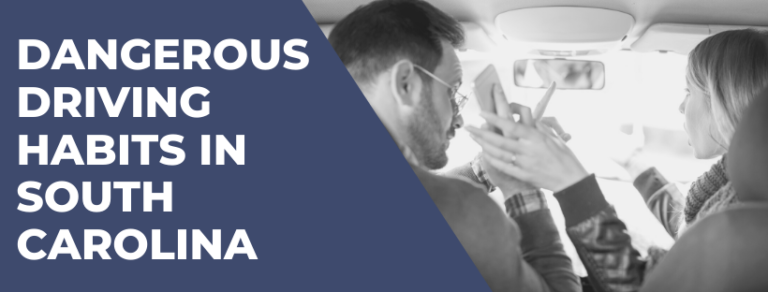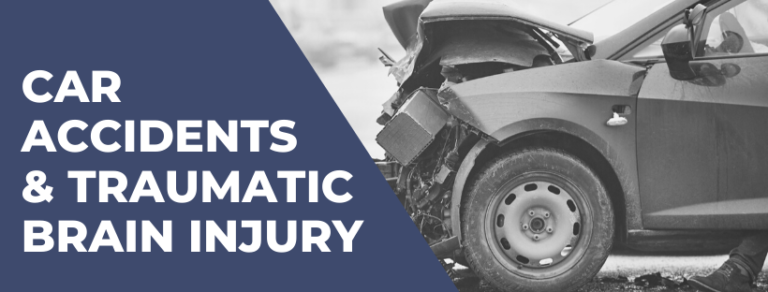When the skies darken, the rain pours, or the winds howl, the risk of accidents on South Carolina’s roads and properties rises. Bad weather accidents encompass a wide range of incidents that occur as a result of adverse weather conditions. These conditions may include heavy rain, thunderstorms, fog, hurricanes, snow, and ice. In South Carolina, where the climate can be unpredictable, and the weather varies across regions, understanding the implications of bad weather accidents is essential.
Importance of Understanding Liability
As the frequency of extreme weather events in South Carolina continues to challenge residents and travelers, it becomes crucial to understand the legal aspects of liability in such conditions. Accidents that occur during adverse weather can lead to complex legal questions. Determining who is at fault and responsible for damages can be challenging, as these incidents often involve various factors beyond a person’s control.
This article will explore the legal considerations and liability issues surrounding bad weather accidents in South Carolina, offering insights into what drivers, property owners, and public entities need to know. By understanding the legal landscape, individuals can navigate the aftermath of bad weather accidents with confidence and ensure their rights and responsibilities are upheld.
South Carolina’s Unique Weather Challenges
South Carolina boasts a diverse climate that can vary significantly from region to region. The state is characterized by a humid subtropical climate, which generally means warm, humid summers and mild winters. However, South Carolina’s geographical diversity, with its coastal areas, upstate regions, and inland areas, can lead to a wide range of weather conditions.
In the coastal areas, the state faces the potential impact of hurricanes and tropical storms during the Atlantic hurricane season, which typically runs from June to November. These powerful storms can bring heavy rain, strong winds, and storm surges that lead to severe flooding and property damage.
Inland regions experience more temperate conditions but are not immune to severe weather events. Thunderstorms are common during the warmer months, often accompanied by heavy rainfall and lightning. Fog can also be an issue, particularly in low-lying areas and near bodies of water.
Impact on Road Safety
South Carolina’s challenging weather conditions can profoundly impact road safety. Adverse weather can reduce visibility, create slippery road surfaces, and increase the risk of accidents. Drivers, in particular, need to be aware of how to navigate these conditions safely and responsibly. On average, 5,376 people are killed and over 418,000 people are injured in weather-related crashes each year in the US.
Understanding the unique weather challenges of South Carolina is the first step in preparing for the legal implications of bad weather accidents. In the following sections, we will explore the legal aspects of liability in these adverse weather conditions and provide guidance for drivers, property owners, and public entities on how to handle these situations effectively.
Liability in Bad Weather Accidents
In South Carolina, as in many states, accidents caused by adverse weather conditions raise complex legal questions surrounding liability. When accidents occur during challenging weather, it’s crucial to understand the legal framework that governs who is responsible for damages and injuries.
Duty of Care in South Carolina
Under South Carolina law, all individuals, including drivers, property owners, and public entities, owe a duty of care to others. This duty requires them to act reasonably and responsibly to prevent harm to others. In the context of bad weather, this means taking precautions and making responsible decisions to minimize the risk of accidents.
Care in Challenging Weather Conditions
South Carolina’s ever-changing weather conditions can complicate the duty of care. Drivers, for example, are expected to adjust their driving behaviors to accommodate the adverse weather. They should reduce speed, increase following distances, and exercise caution when visibility is limited, or road surfaces are slick.
Property owners are expected to maintain safe premises, even in bad weather. This includes keeping walkways clear of ice and snow, addressing hazards, and warning visitors of dangerous conditions.
Public entities, such as municipalities and state agencies, also have a duty of care in maintaining public roads and infrastructure. During adverse weather events, they should take appropriate measures to keep roads safe and minimize risks to the public.
Negligence and Contributory Negligence
Accidents in bad weather can often be attributed to negligence, which is the failure to exercise the required duty of care. In South Carolina, the legal concept of contributory negligence comes into play. This means that if an individual’s negligence contributes to an accident, their ability to recover damages may be affected.
Determining negligence and contributory negligence in bad weather accidents can be challenging. Factors such as speed, following distance, and the choice to drive in certain conditions are all critical elements in assessing liability.
Establishing Liability
Proving Negligence
To establish liability in a bad weather accident, it’s essential to demonstrate that the responsible party acted negligently. This often involves gathering evidence, such as witness statements, accident reports, and weather data, to show that the adverse weather was a contributing factor to the accident.
Comparative Fault
South Carolina follows a modified comparative fault system, which means that a plaintiff’s recovery may be reduced if they are found partially at fault for the accident. Understanding how this system works is crucial in determining the amount of compensation an injured party may receive.
Special Considerations for Drivers
Speed and Following Distance
One of the key considerations for drivers in bad weather is the adjustment of speed and following distance. Failing to reduce speed and maintain a safe following distance in adverse weather can be a significant factor in determining liability.
Vehicle Maintenance
Maintaining a vehicle in good working order is also crucial in bad weather conditions. Malfunctioning brakes, worn tires, or inadequate windshield wipers can contribute to accidents and impact liability.
Use of Hazard Lights
The use of hazard lights in bad weather can vary by state and may have legal implications. Understanding when and how to use hazard lights can be important for drivers during adverse weather conditions.
Related: The Ultimate Guide to Driving In Slippery Road Conditions
Government and Public Entities in Bad Weather Accidents
Government and public entities play a significant role in the safety of South Carolina’s roads and infrastructure, particularly during adverse weather conditions.
Road Maintenance and Liability
Duty of Public Entities
Public entities, including municipalities and state agencies, have a duty to maintain public roads and infrastructure to ensure the safety of the traveling public. This responsibility encompasses actions like regular maintenance, addressing hazardous conditions, and taking measures to keep roads safe during adverse weather.
Immunity and Exceptions
While public entities have a duty of care, they also enjoy certain legal immunities that can limit their liability. South Carolina law provides limited immunity to public entities, particularly when they have made reasonable efforts to maintain roads and provide warnings during bad weather.
However, there are exceptions to this immunity. If a public entity fails to fulfill its duty of care during adverse weather, and this failure leads to an accident, it may be held liable for damages. Determining whether an exception applies can be complex, and it often requires a careful examination of the specific circumstances surrounding the accident.
Emergency Response and Liability
First Responders’ Duties
First responders, including law enforcement, paramedics, and firefighters, have a crucial role in managing accidents during bad weather. They are expected to provide aid, control traffic, and handle emergency situations to the best of their ability.
Emergency Vehicle Accidents
Accidents involving emergency vehicles, such as police cars, ambulances, or fire trucks, can be particularly challenging when they occur during bad weather. Emergency vehicles may sometimes be exempt from certain traffic regulations when responding to an emergency. However, this exemption is not absolute, and first responders must still operate their vehicles with due regard for public safety.
Determining liability in accidents involving emergency vehicles during adverse weather often requires a thorough investigation to understand the circumstances and adherence to established protocols.
Premises Liability in Bad Weather
Bad weather can create hazardous conditions on private and public properties, raising concerns about premises liability. Property owners, including homeowners and commercial establishments, have a responsibility to maintain safe premises for visitors, even when adverse weather conditions prevail.
Property Owners’ Responsibilities
Property owners are expected to exercise reasonable care in maintaining their premises to prevent accidents. This duty of care extends to addressing hazards created by adverse weather conditions. Responsibilities may include ensuring walkways are clear of ice and snow, fixing slippery surfaces, and providing warnings when necessary.
Slip and Fall Accidents
Slip and fall accidents are a common concern in bad weather conditions. When property owners fail to address hazardous conditions caused by rain, snow, ice, or other adverse weather-related factors, they may be held liable for injuries sustained on their property.
Proving liability in slip and fall cases during bad weather often involves demonstrating that the property owner knew or should have known about the dangerous condition and failed to take appropriate action.
Snow and Ice Removal
In regions of South Carolina where winter weather can bring snow and ice, property owners must be prepared to address these conditions promptly. Neglecting to remove snow and ice from walkways and driveways can create significant hazards.
Understanding local ordinances and regulations regarding snow and ice removal is important for property owners to avoid potential liability. These regulations may specify the timeframe within which snow and ice must be removed and the methods for doing so.
Liability of Commercial Establishments
Commercial establishments like stores and restaurants must also meet specific standards for maintaining safe premises during adverse weather. These businesses should take reasonable precautions to prevent accidents, including salting sidewalks, providing mats to absorb moisture, and warning patrons of slippery surfaces.
Customers injured due to a commercial establishment’s failure to address hazardous conditions may have a valid premises liability claim. Proving negligence on the part of the business is critical in these cases.
Related: Winter Work Accidents
Insurance Considerations
Navigating the aftermath of bad weather accidents in South Carolina often involves dealing with insurance companies. Understanding the state’s insurance requirements, the types of coverage available, and the process of filing a claim is crucial for individuals and entities involved in accidents during adverse weather conditions.
South Carolina’s Insurance Requirements
South Carolina has specific insurance requirements that all drivers must adhere to. The minimum required coverages include:
- Liability Insurance: Drivers must have liability insurance coverage to pay for damages and injuries caused to others in an accident.
- Uninsured Motorist Coverage: South Carolina requires uninsured motorist coverage, which helps protect you in the event of an accident with a driver who has insufficient or no insurance.
Ensuring that you meet these minimum insurance requirements is essential in South Carolina. Failing to do so can result in penalties, including fines and license suspension.
Types of Insurance Coverage
Auto Insurance
When it comes to bad weather accidents, auto insurance plays a significant role. Comprehensive coverage may help pay for damage to your vehicle caused by adverse weather conditions such as hail, flooding, or falling debris. Understanding the scope of your auto insurance coverage is important to determine what damages it may or may not cover.
Property Insurance
Homeowners, renters, and business owners should also consider property insurance, which may cover damages to your property resulting from bad weather events. This can be particularly important in South Carolina, where the risk of hurricanes and flooding can pose significant threats to property.
Filing an Insurance Claim
When an accident occurs during adverse weather, filing an insurance claim can be a complicated process. To navigate this effectively, consider the following steps:
- Report the accident: Notify your insurance company promptly, providing all relevant details about the accident.
- Document the damage: Take photos of the accident scene, your vehicle, and any injuries sustained. This documentation will be valuable when filing a claim.
- Collect witness information: If possible, gather contact information from any witnesses to the accident. Witness statements may be critical for your claim.
- Seek legal assistance: In complex cases where liability is disputed, or damages are substantial, consulting an attorney experienced in personal injury or property claims can be highly beneficial.
Legal Steps Following a Bad Weather Accident
Accidents caused by adverse weather conditions can be disorienting and emotionally challenging. In this section, we will discuss the crucial steps to take following a bad weather accident in South Carolina. Understanding these steps can help individuals and entities navigate the aftermath effectively and protect their rights.
Gathering Evidence
Collecting evidence from the accident scene is essential in establishing liability and securing compensation. Key pieces of evidence may include:
- Photographs and videos: Document the scene, vehicle damage, road conditions, and weather at the time of the accident.
- Contact information: Obtain contact details from all parties involved, including witnesses, if applicable.
- Accident reports: Contact law enforcement to ensure an official accident report is filed. This report can be vital in determining liability.
- Weather records: Obtain weather data from the time of the accident, which may be essential in proving adverse conditions.
- Medical records: If injuries are sustained, keep a record of medical treatment, including hospital visits and doctor’s notes.
Reporting the Accident
Reporting the accident to the relevant authorities is a critical step. In South Carolina, it is typically mandatory to report accidents that result in injury, death, or significant property damage. Contacting the police and ensuring an accident report is filed is essential to protect your interests.
Consultation with an Attorney
Seeking legal advice and representation is often wise, particularly in complex cases or when liability is disputed. An experienced car accident lawyer or personal injury attorney based in South Carolina can provide valuable assistance by:
- Assessing the strength of your case.
- Dealing with insurance companies on your behalf.
- Advising on the legal process and potential strategies.
- Negotiating for a fair settlement.
- Representing you in court, if necessary.
By consulting with an attorney, you can better understand your legal options and ensure your rights are protected throughout the legal proceedings following a bad weather accident.
Navigating the aftermath of a bad weather accident in South Carolina can be challenging, but taking the right steps can make the process smoother. Gathering evidence, reporting the accident, and consulting with an attorney are crucial actions that can help you protect your interests and secure the compensation and resolution you deserve.
Safety Tips for Navigating Bad Weather in South Carolina
Accidents caused by adverse weather conditions can often be prevented or minimized with the right precautions and safety measures.
Preparing for Inclement Weather
Stay Informed
- Keep an eye on weather forecasts and alerts, especially during hurricane season or when severe weather is anticipated.
- Sign up for weather alerts and warnings to receive timely information about impending storms or adverse conditions.
Emergency Kit
- Create an emergency kit for your home and vehicle, including essentials like water, non-perishable food, blankets, flashlights, and a first-aid kit.
- Consider keeping a small emergency kit in your vehicle, especially during winter weather, in case you become stranded.
Safe Driving Practices
Reduce Speed
- Slow down when driving in adverse weather conditions, such as heavy rain, fog, snow, or ice.
- Decrease your speed to match road and weather conditions, even if it means driving below the speed limit.
Increase Following Distance
- Maintain a safe following distance from the vehicle in front of you, allowing ample time to stop if needed.
- In wet or icy conditions, increase the following distance to account for longer stopping distances.
Use Headlights
- Always use your headlights in adverse weather conditions, including daytime running lights.
- This not only helps you see better but also ensures that other drivers can see your vehicle.
Avoid Distractions
- Eliminate distractions while driving, such as texting, making phone calls, or adjusting the radio.
- Focus your attention on the road and potential hazards during bad weather.
Property and Premises Maintenance
Snow and Ice Removal
- Property owners should promptly remove snow and ice from walkways, driveways, and parking lots during winter weather.
- Use appropriate snow removal tools and materials, like shovels, salt, or sand.
Warning Signs
- Property owners should use warning signs or barriers to indicate hazardous conditions, such as slippery floors, wet surfaces, or areas under repair.
- To alert patrons, businesses should place warning signs when floors are recently mopped or wet, too.
Preparedness for Hurricanes
Evacuation Plans
- Familiarize yourself with local evacuation routes and shelters, especially if you live in hurricane-prone areas.
- Have an evacuation plan in place and a designated meeting point for family members.
Secure Property
- Before a hurricane, secure your property by reinforcing windows and doors and securing loose outdoor items.
- Consider installing hurricane shutters to protect your home during severe storms.
These safety tips are designed to help individuals and property owners stay prepared and safe during adverse weather conditions in South Carolina. By taking proactive measures and following these guidelines, you can reduce the risk of bad weather accidents and better protect yourself, your property, and others.
Related: How to prevent a winter car accident
Stay Calm in a Storm
While adverse weather conditions can pose significant challenges and potential hazards, being informed and taking proactive steps can significantly reduce the likelihood of bad weather accidents.
We hope this article has provided valuable insights and guidance to help individuals and entities navigate the legal, safety, and insurance aspects of these challenging conditions in South Carolina. By doing so, we can better protect our communities and promote safer roadways and properties even in the face of adverse weather.





